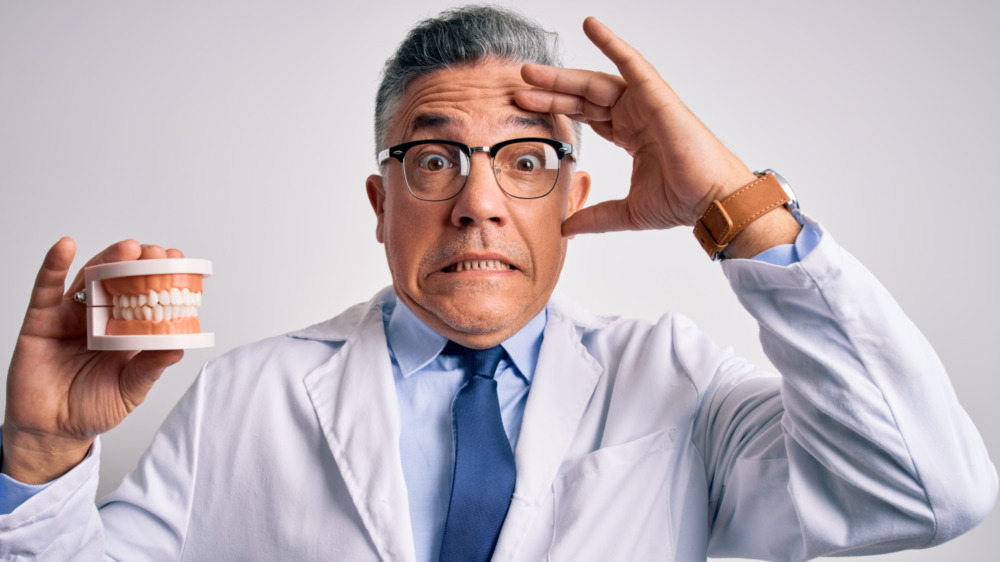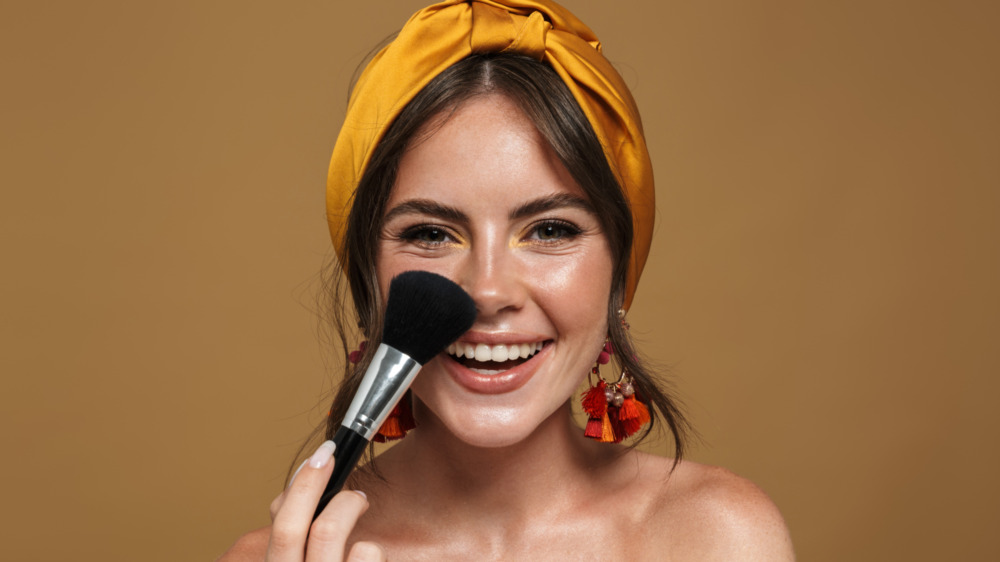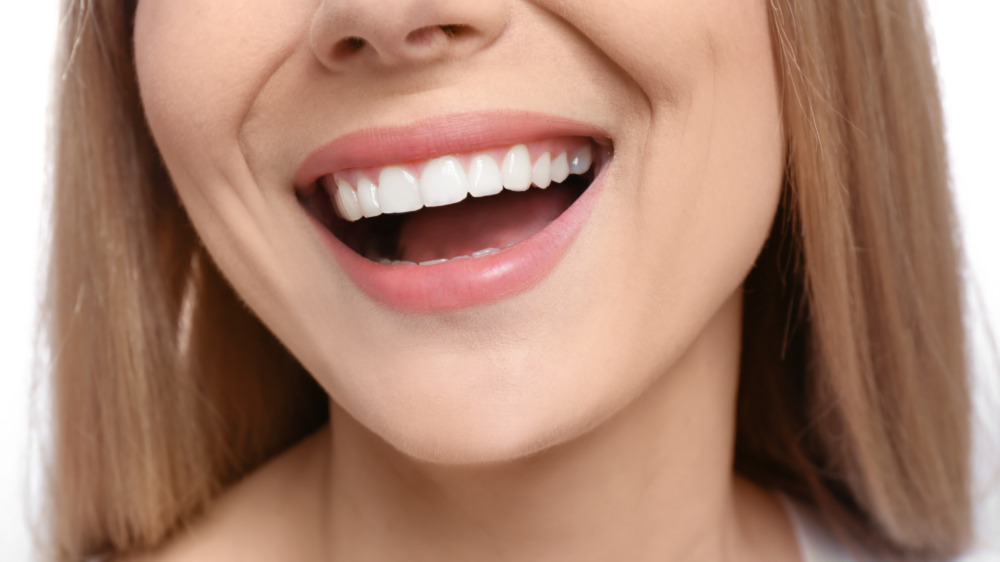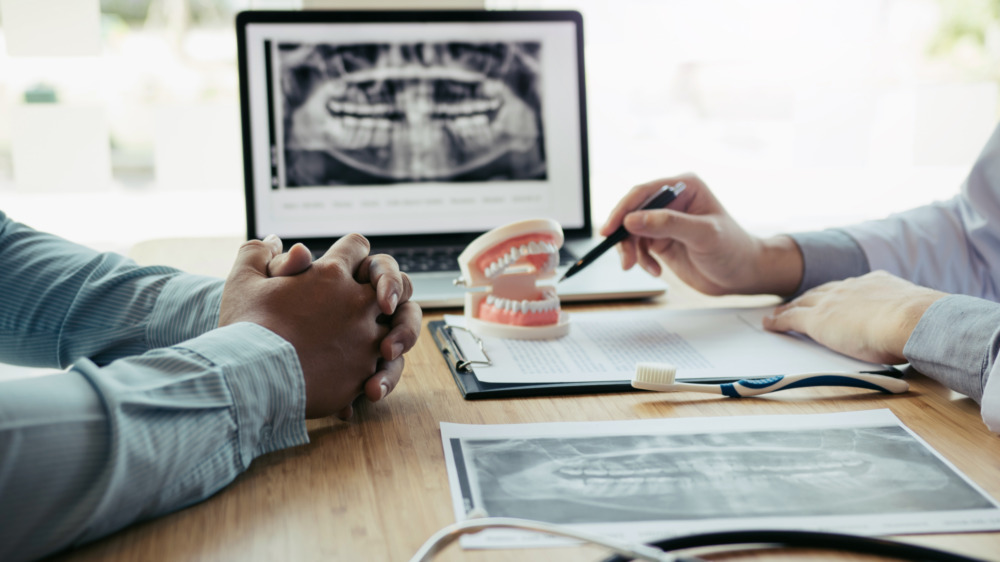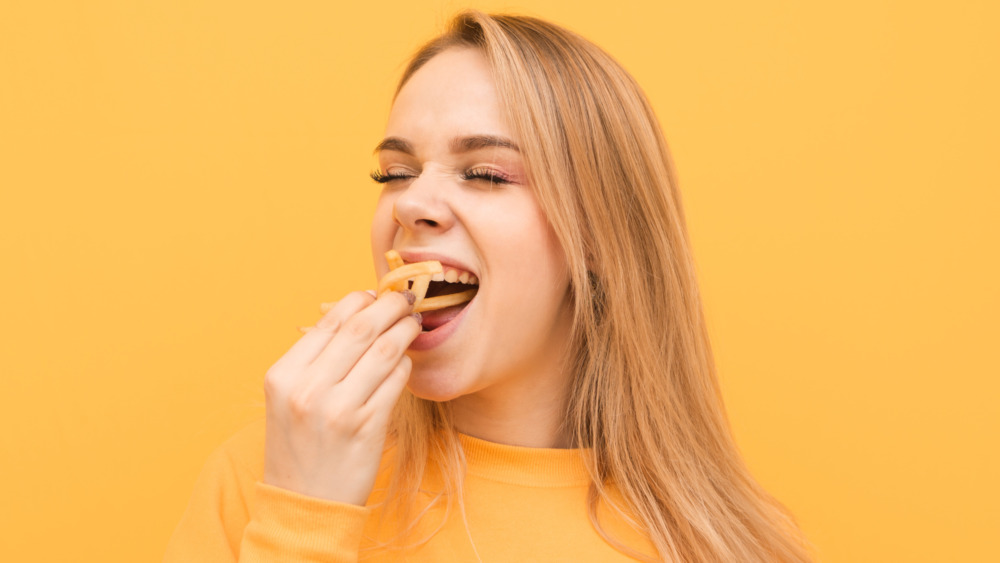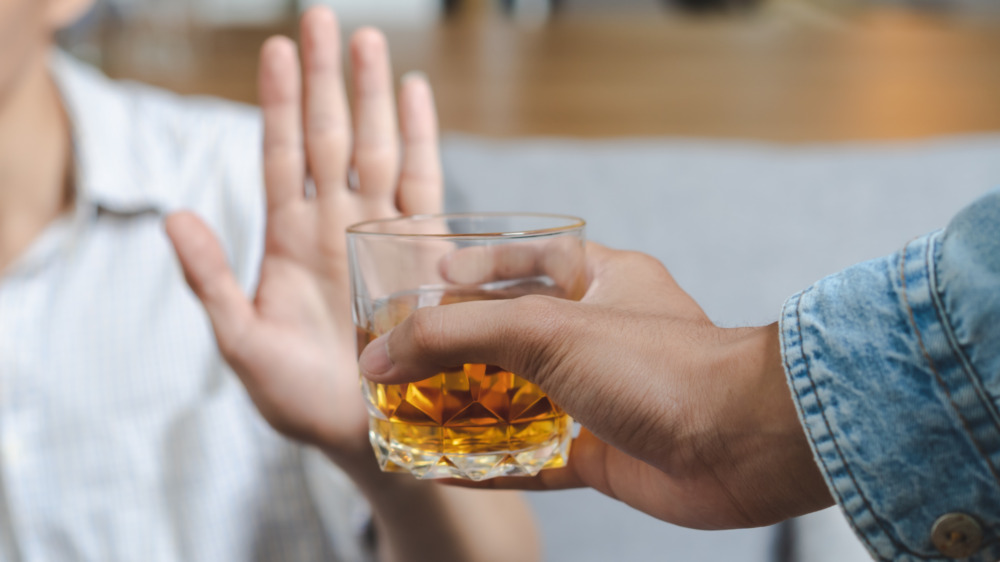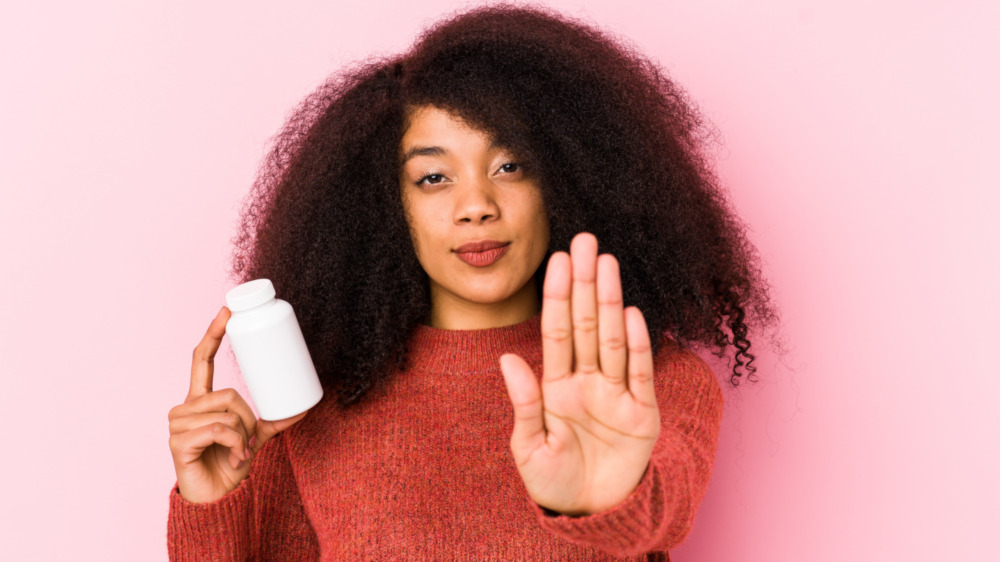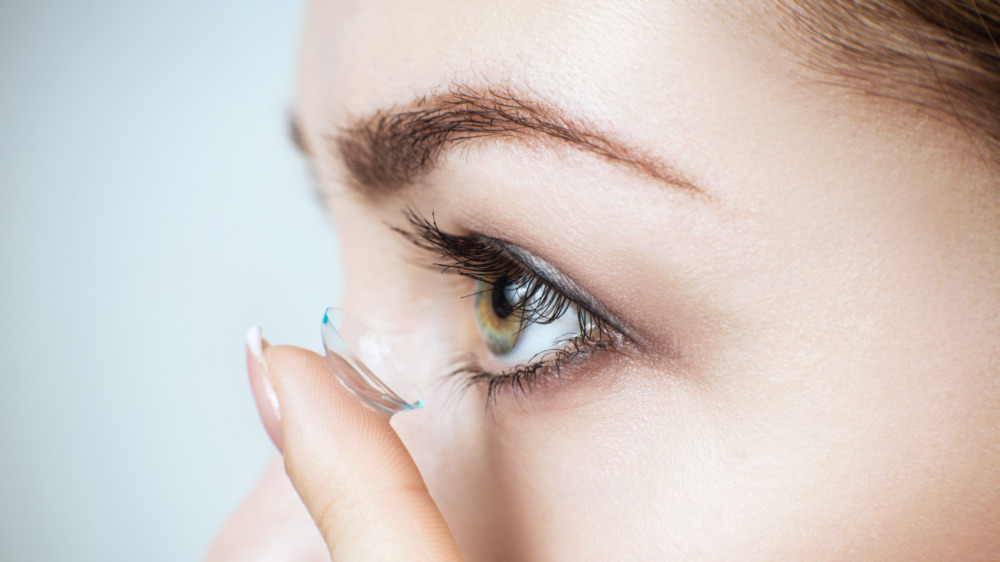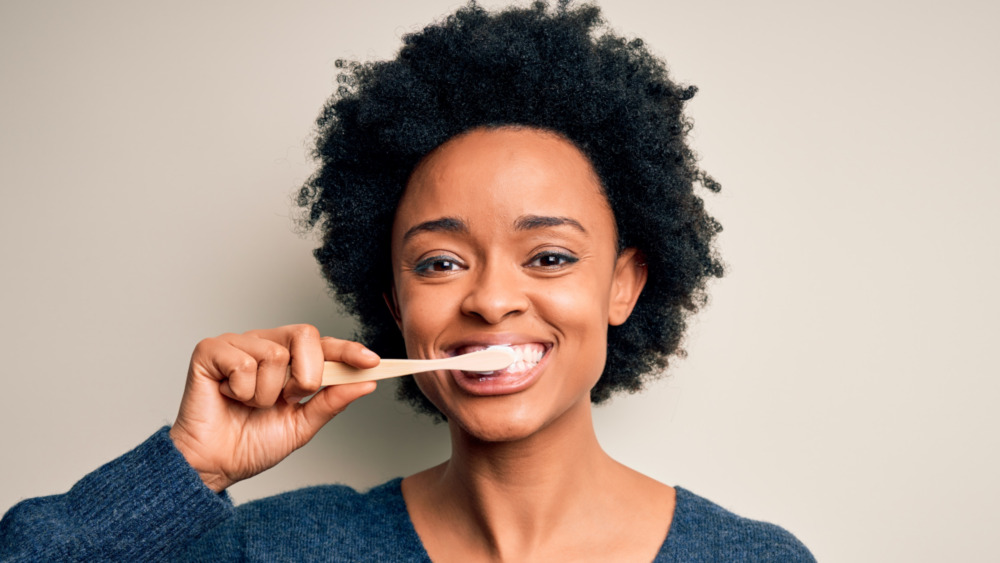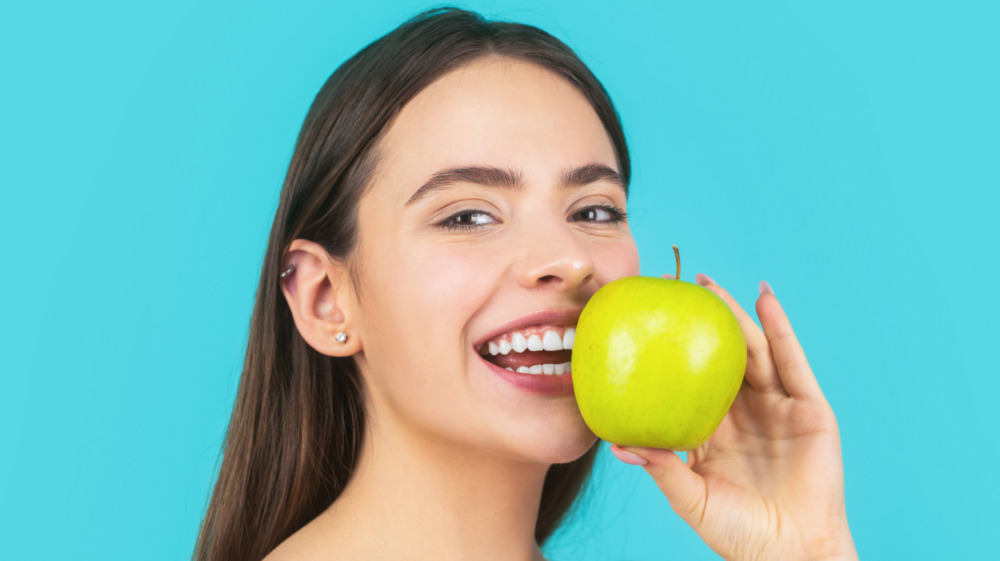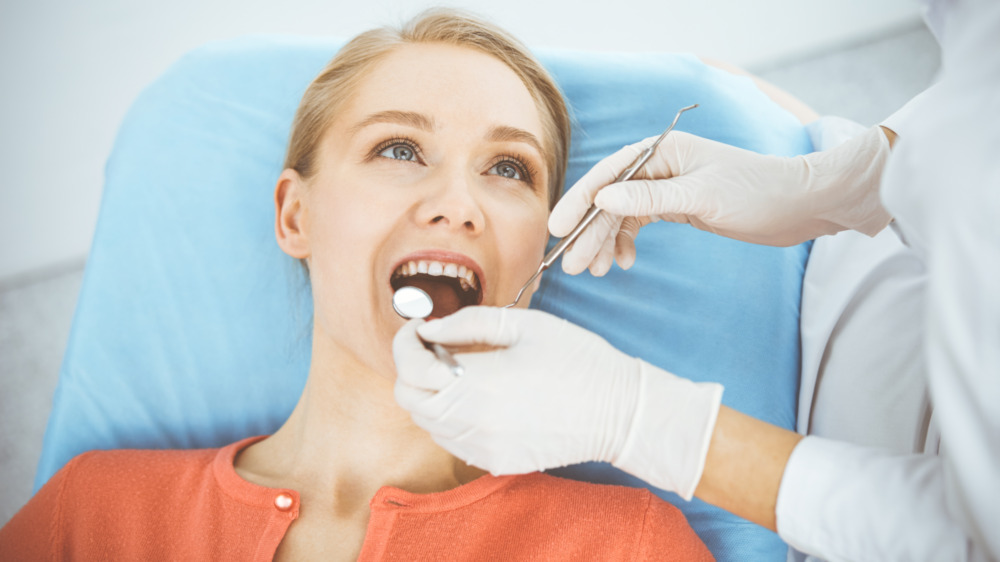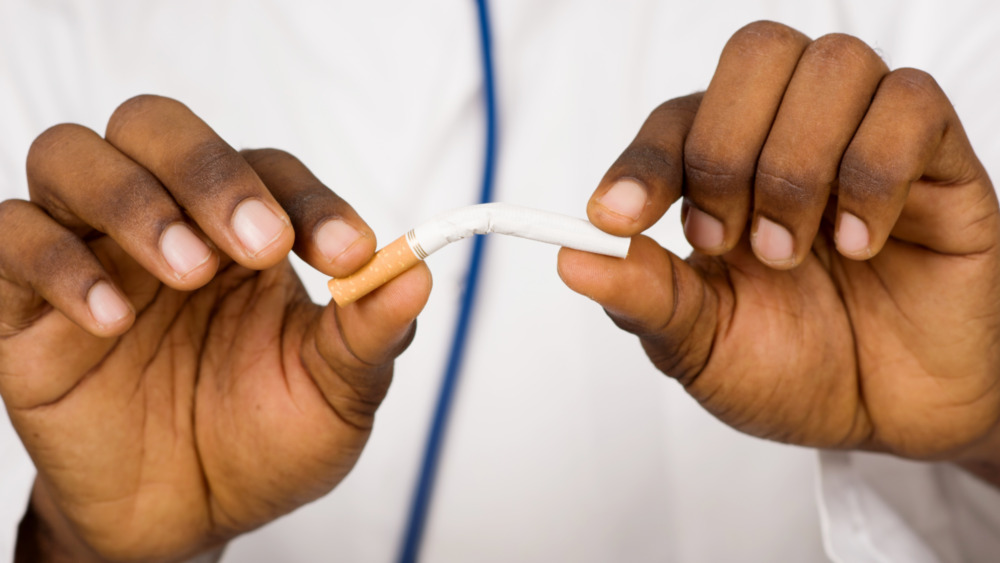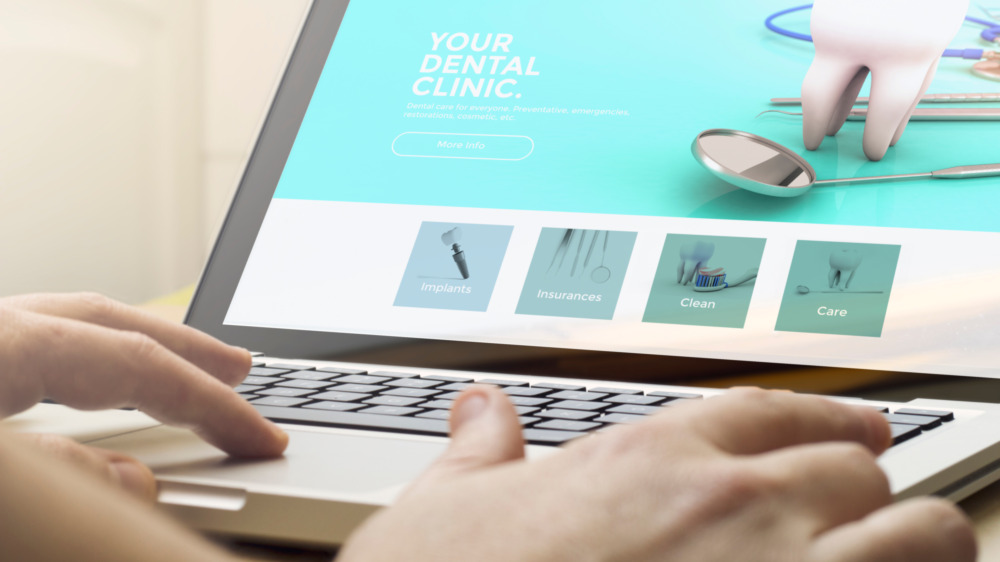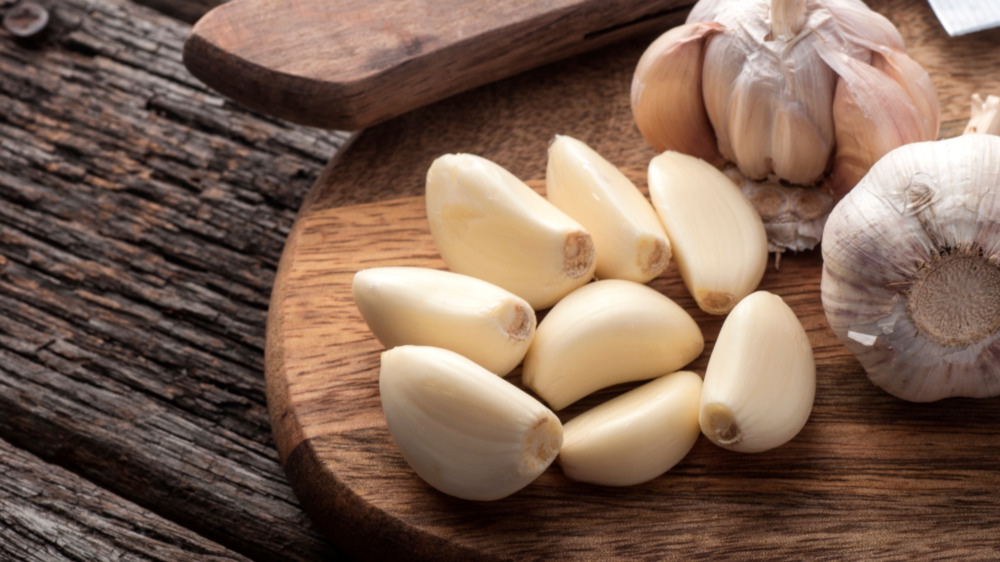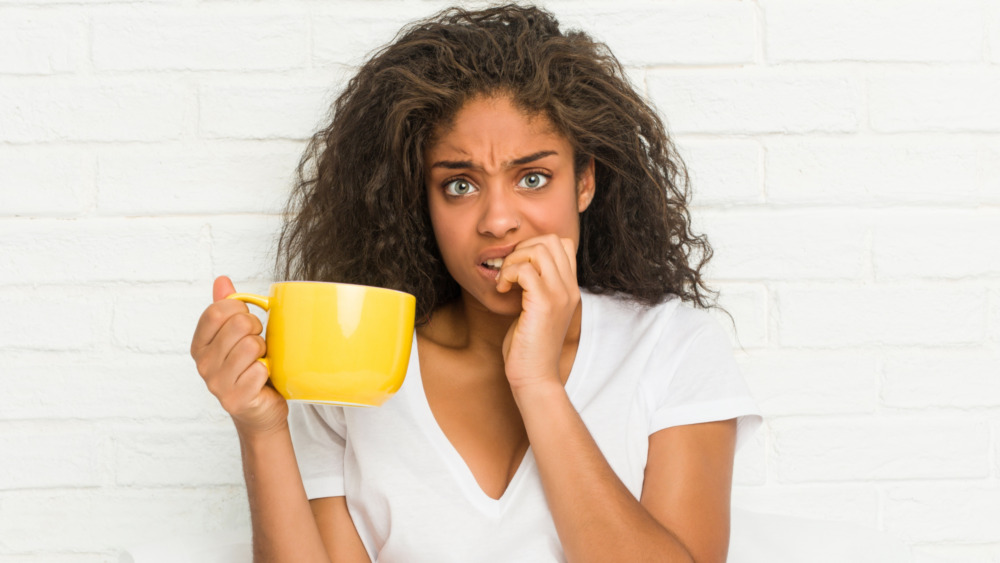Things You Should Never Do Before Going To The Dentist
Ah, the dentist. The haven of good dental hygiene, and for many, one of those places you really don't want to go. Despite a visit to the dentist being essential for maintaining good oral health, and most dentists doing everything in their power to make your visit as stress-free as possible, a huge amount of people are scared of the chair. One 2014 study published by Medical Principles and Practice found that 36 percent of people experience dental anxiety when in the dentist's office or before a visit, and 12 percent of those experience extreme fear.
Yet despite this trepidation, Americans seem to understand the importance of getting their teeth checked. As Delta Dental reported, approximately 93 percent of Americans plan on visiting the dentist in 2021. But in your fear of opening wide and saying ahh, you might be tempted to do some things before your check-up which could prove less than useful. If you're due for an appointment soon, sink your teeth into the following things you should never do before going to the dentist.
Avoid putting on too much makeup before seeing the dentist
You might not think twice before putting on a face full of makeup before heading to the dentist, but it's a surprisingly annoying factor for your dentist. According to Savannah Dental Solutions, a dental practice in Savannah, Georgia, run by Chad and Alexandra Schnabel, "Dental procedures involve placing hands, tools, and water inside your mouth. Depending on exactly what you are having done, your mouth may also be numbed. Since the area around your mouth will likely get messy, it's best to skip the lipstick, foundation, and full face powder." That said, the dentists noted that blush and mascara are fine.
Try your best to arrive with a mostly bare face to avoid any unwelcome mess for the professionals perfecting your smile, and consider packing your makeup bag if you have to head somewhere else after your appointment. As Savannah Dental Solutions explained, "If you're heading to work or a social engagement after your appointment, you can always freshen up and apply makeup in the restroom on your way out."
Don't bring a picture of your dream teeth to a cosmetic dental consultation
The Hollywood smile is a much-coveted look for some people, which is why it's not surprising that dentists are routinely asked how they can get an A-lister's stunning grin when stopping in for a cosmetic dental consultation. According to doctor of dental surgery Jay Grossman, however, bringing in a picture of your "dream teeth" isn't exactly a feasible way to approach dental work.
In an article for The Healthy, he explained, "Patients come in with pictures of celebrities and say, 'I want to look just like her.' I'm sitting there thinking, You can't have a smile that looks like Angelina Jolie's, because you don't have a face that fits those teeth. It's like when you get your hair color done — you can't just put the same highlights or lowlights in everybody's hair." Of course, having an idea of what you're hoping to achieve is wise, but don't get too set on a specific look.
Never keep your medical history a secret from your dentist
A dentist appointment is a medical appointment, and should be treated as such. Unfortunately, though, when it comes to oral procedures, patients can forget that they need to be as open and upfront about any medical history as they would be with their primary doctor. Not doing so can be downright dangerous.
According to Martin Hogan, dentist and division director of the Oral Health Center at Loyola University Medical Center in Illinois, it's vital to share information beforehand so your dentist knows how best to treat you. In an interview with Medical Xpress, he explained, "If you have experienced a serious health condition such as a surgery or been diagnosed with a chronic condition, you need to tell your dentist before you come for your appointment. Depending on the illness, you may need to be premedicated with antibiotics to prevent infection."
This premedication, according to Hogan, is important. "Pretreatment one hour before the appointment with an antibiotic is recommended for patients with certain health conditions," the dentist revealed. Without it, your appointment "must be rescheduled ... resulting in a wasted trip."
Skip the simple carbs and eat protein before going to the dentist
If you're gearing up for a long stint in the dentist's chair, you'll benefit from a nutritious meal. As doctor of dental surgery Brandon Cooley of Cooley Smiles Kenmore explained, "You want to choose foods that will help to keep your energy level stable throughout your dental procedure, and highly-processed carbs just aren't able to do that. While they might provide an initial jolt of energy, once your blood sugar levels fall back to normal, your energy will also be zapped. Unfortunately, when your energy level decreases, your stress level will increase."
Making sure you're eating a meal that keeps your energy levels mediated, such as one high in protein or fats, can help to boost and sustain energy levels (via Medical News Today). This in especially safe bet if you're not particularly comfortable in a dentist's chair. As Cooley wrote, "If your pre-dental meal doesn't sustain you throughout your appointment, this could leave you feeling restless, irritable, and even light-headed mid-appointment."
If you're going to need medication, don't drink alcohol before your dentist appointment
This may seem like a no-brainer, but considering the anxiety that can surround a trip to the dentist, it's easy to see why people would be tempted to indulge in a drink or two before an appointment. However, doing so could mean trouble when you arrive at the practice, particularly if you're visiting to undergo treatment that requires medication.
Dr. David Potts, dentist for County Family Dental Care in Libertyville, Illinois, explained, "Of course, you could drink wine before going to the dentist, but it will affect [your] treatment. There will be some counter-indications between the wine and some dental medication." This could leave you at risk of having to reschedule your appointment or worse, you could put your health in danger.
If you're feeling a little nervous around your treatment, Potts advised, "You might consider doing some form of sedation dentistry instead. That won't keep you from any form of treatment, but will give you the same relaxed feeling you can get from wine."
If you're going in for a root canal, don't take painkillers
It seems pretty logical, right? For a procedure considered to be as frightening and painful as a root canal (although interestingly, only 17 percent of people actually consider it their "most painful dental experience," according to the American Association of Endodontists), taking some pain medication beforehand feels like the smart thing to do.
However, taking painkillers before arriving at the dentist may be an unwise move, and for more than one reason. As Downtown Dental, a dental practice in Greenville, South Carolina revealed, anesthesia is typically administered before a root canal begins, meaning there's no need for any over-the-counter medications. Also by taking painkillers, you're, well, killing the pain. This is a problem because your dentist may actually need for you to identify exactly where the pain is located before they can get to work. Even if you're nervous about the potential for pain, leave the medicating to the dentist.
If you're having dental surgery, don't wear contact lenses
It might seem like forgoing glasses and opting for contacts would be the more comfortable choice in the dentist's chair, what with the amount of stuff going on in and around your mouth during a procedure. The less on your face, the better, right? Well, this isn't quite the case, particularly if you're undergoing oral surgery.
According to Verywell Health, wearing contacts during surgery can be problematic if you're having to undergo a general anesthetic. This is because your eyes may need to remain closed for an extended period of time. While a short period of your eyes being closed isn't too risky, longer periods of wearing contact lenses with your eyes shut can raise your risk of eye infection, as well as being generally uncomfortable to remove afterward (via Healthline).
Also, if you're going to need oral surgery, make sure to wear practical, comfortable clothing, remove any jewelry beforehand, and if you have longer hair, tie it back so it's away from your face. The more you can help your dentist do what they need to do, the easier the procedure will be.
Unless you've eaten recently, don't brush your teeth before seeing the dentist
Brushing your teeth before going to the dentist makes perfect sense initially. After all, you're going somewhere where your mouth is on full display, and you don't want to have your breath smelling its worst on its big day. However, as Ada Cooper, a New York City-based dentist and spokesperson for the American Dental Association, revealed, this is something that dentists accept — and brushing your teeth might actually not be as helpful as you think.
Speaking with The Healthy, Cooper said, "This is what we do for a living so we understand there are some things that can't be avoided, bad breath being one of them. Sometimes it's best not to try to camouflage things going on in your mouth before visiting the dentist."
Dentists need the full picture of your dental health going in, and bad breath could be a sign of other dental or medical issues. Trying to mask it doesn't exactly help them to give you the help you might need. If you've just eaten, however, a brief brushing to remove any leftover food waste is probably not the worst idea in the world.
Don't eat shortly before a teeth cleaning
While you may not feel like eating before a teeth cleaning is that big of a deal — you're getting your teeth cleaned later, after all — it's not the best etiquette to live by. Gregory Skeens, a doctor of dental surgery at Encinitas Family Dentistry, explained on his practice's site, "It is recommended you do not have anything to eat or drink (except for water) at least 5 hours before your scheduled appointment. This will prevent food debris from lodging in your teeth, which can irritate you during a cleaning and give your dentist a little extra work to do."
After a teeth cleaning, you can resume eating and drinking as usual. If your gums are sore, however, you may want to wait a half-hour before having a meal (via Broadway Family Dental). You should also wait this amount of time if fluoride was used during your cleaning.
Don't step up your dental hygiene suddenly before seeing the dentist
Look, we get it. Going to the dentist strikes fear into the heart of even the most diligent flosser. And if it's been a while since you've had an exam, you might feel like putting in the hours on your dental hygiene just before your appointment. However, doing this is futile. After all, dental hygiene is a lifelong endeavor, and trying to make up for lost time may cause you a fair amount of discomfort.
More to the point, your dentist can tell. Martin Hogan, doctor of dental surgery and division director of the Oral Health Center at Loyola University Medical Center, told Medical Xpress, "Sometimes we will see the gum tissue slightly irritated and when asking patients about this, they mention that they have been flossing 'extra hard' the past few days in anticipation of their dental visit. Other times we may see the gum tissue slightly dried out, which often is caused by excessive use of alcohol-containing mouth rinses." So while we get why you'd do this, it isn't helping you and it certainly isn't fooling your dentist. Instead, focus on practicing good oral hygiene consistently. That's the way to save face with your dentist.
Don't smoke before coming to the dentist
Although smoking rates are on the decline in the U.S. — from 20.9 percent of adults in 2005 to 14 percent in 2019, per the CDC – it's far from rare. And with the myriad health complications that smoking can cause, it's little surprise that your dentist also isn't a huge fan of the harmful habit. As Ada Cooper, a New York City-based dentist and spokesperson for the American Dental Association, told The Healthy, "Smoking is something patients shouldn't do period, but definitely not before the dentist."
Smoking can lead to tooth staining, bad breath, inflammation of your salivary gland openings, and heightened plaque and tartar build-up on your teeth, all of which can cause headaches for your dentist when trying to administer treatment (via WebMD). And that's all before the fact that smoking can also lead to a higher risk of gum disease, longer healing times after dental surgery and procedures, and a higher prevalence of developing oral cancer. If it wasn't time to quit before, it could be now.
Don't neglect to check what your insurance covers before you see the dentist
Having sufficient insurance or funds to cover any procedures you might need is a requirement for a lot of dental practices. But even if you think you're covered for the treatment you require, it's important to check what your insurance will pay for prior to your appointment. Otherwise, you may be looking at quite the bill afterward, or you might not be able to get the treatment you need.
According to dentist Damian Dachowski, this is something that can be a real headache for dentists. Speaking to The Healthy, he opined, "People come in for an appointment without knowing what their insurance covers. They think we have a crystal ball that tells us everyone's insurance information. We don't. And we need to find out what's covered before we can do anything."
Make sure to look over your insurance information carefully before visiting your dental practice to avoid any nasty surprises. Or if you're one of the 37 million Americans without dental insurance, price out any treatments you may need before arriving at your appointment.
Skip the garlic before seeing the dentist
Garlic is delicious, but the aftereffects of eating it are unlikely to endear you to those you come close to — especially your dentist. With garlic producing notoriously pungent breath, don't expect your dentist or dental hygienist to be in the best mood after you down a plate of spaghetti aglio e olio. Dentist Jennifer Jablow put it succinctly when speaking with The Healthy: "Don't eat a heavy garlic lunch before coming to see us — we'd appreciate that."
On that note, there are a few other food choices that are less than ideal to snack on before your appointment. Eating or drinking anything high in citrus just before seeing the dentist, for example, can temporarily weaken your tooth enamel, which can cause problems when your hygienist comes to scrape your enamel and could potentially cause lasting damage to your teeth (via Dental Choice). Indulging in popcorn, too, can cause kernels to get stuck in your teeth, meaning that your dentist or dental hygienist has a bigger job on their hands than necessary.
Don't drink too much caffeine before going to the dentist
Many people don't find going to the dentist to be a joyous experience, but if you find it particularly nerve-wracking, it could be that you have dental anxiety, a term used to describe feelings of fear and stress during dental visits (via Better Health). More profound fear of dental procedures, even routine ones, could mean that you could even have dental phobia. If you feel you're prone to either of these, drinking too much caffeine before a trip to the dentist is likely to hinder more than it helps.
According to Healthline, high doses of caffeine can cause or worsen symptoms of anxiety, meaning that cup of coffee before heading into the dentist isn't ideal. Indeed, Dental Health Associates, a company offering dental care in several locations in Virginia, states that caffeine is not advisable before a visit for anyone who experiences anxiety, and can even result in panic attacks during dental care.
Instead, try to replace your morning coffee with a decaffeinated version. If you're particularly worried about experiencing anxiety before or during a dental procedure, speak with your dentist beforehand, as it's something that they'll be familiar with.

